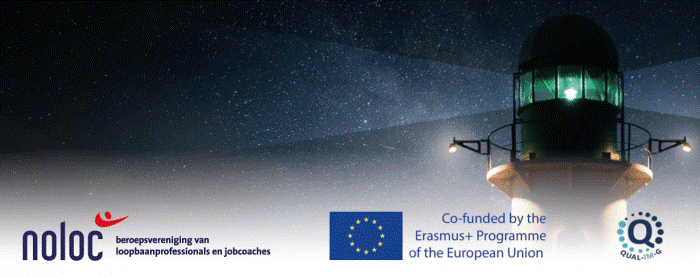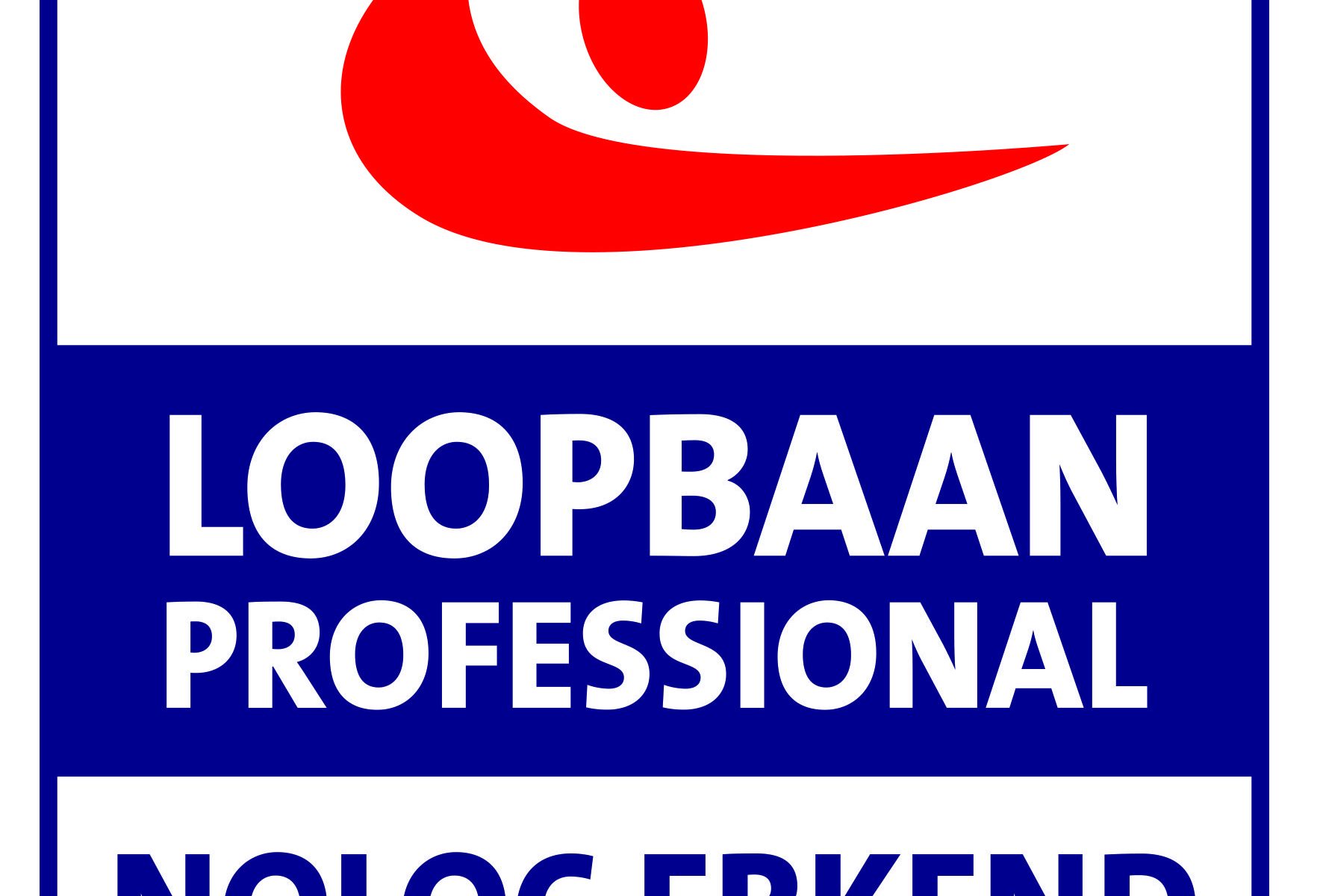Flexicurity, robotization, lifelong learning and mobility of labour across borders (national and sectoral) are the main drivers for change and innovation. This not only challenges where and how we work but also when and why we work. In addition, aging Europe results in a working population that has to work longer, asking for more awareness and guidance towards ‘second careers’. Added to this is the trend of personalising the learning needed for staying tuned in to the labour market. In short: our work paradigm is in transition, since the importance of jobs is fading and the importance of careers emerges. Career guidance and career guidance professionals are important beacons of light in facilitating this transition for both organisations and individuals. What is needed is a clear vision from an educational, social and economic point of view of how to assure the quality of those involved in guiding people into the labour market of the future.
On February 15, 2019, the Dutch professional association for career guidance professionals and jobcoaches – Noloc – organized an international conference on Careers in transition and the need for assuring the quality of career guidance professionals. The conference took place in ‘s Hertogen-bosch, the Netherlands, as part of the ErasmusPlus project QUAL-IM-G. This project focuses on improving the implementation of quality assurance in career guidance, and includes partners from the Netherlands, Slovakia, the Czech Republic, the UK, Germany, Austria, and Norway.
At the conference, both national and international speakers presented contributions on the role of career guidance and competent, qualified career guidance professionals as beacons of light in a rapidly changing European labour market.
The conference offered a platform to discuss the trends across Europe, to present best practices and create more clarity on present dynamics in work, learning and guidance. Its objective was to link the need of a changing labour market paradigm with the need that this transition should be guided by competent, qualified career guidance professionals.
Attended by over 80 policy makers, academics, career professionals and representatives from a diversity of organisations, the conference provided many useful insights in sharing expertise and experiences from a variety of angles.
Martin Soeters MSc, working for the Dutch ministry of Education, culture and sciences, shared his view on the lifelong learning (policy) context of career guidance in the Netherlands. He stated the importance of adult learning as a driver for individual self-fulfilment, economic development and social inclusion. Adult learning can help people acquire the basic skills (literacy, numeracy and digital skills) they need to take part in a transforming society, which helps society to become more inclusive. The Dutch policy goal for adult learning is to improve the learning culture: it should be second nature for everyone to develop their skills further. An important element is to reach out to adults, to support and activate them to make the right decisions to improve (basic and) professional skills. That is where career guidance can make the difference.
Prof. Dr. Judith Semeijn, holder of the Noloc chair on Career management at the Open University of the Netherlands, argued in her keynote address that career management is becoming a strategic asset for sustainable organisations. Changing working patterns require changing HR solutions, with more focus on career guidance. This not only has consequences for the professional development of career guidance professionals, but also for the underlying quality standards of the profession as a whole.
Dr. Jos Sanders, professor at the HAN University of Applied Sciences, stressed in his keynote address that the current labour market changes require innovative guidance instruments for employees. His keynote presentation showed how skills mismatches occur and how they are barely resolved in modern day’s highly dynamic labour market. Precarious workers especially need professional and high quality guidance in maintaining their fit to ever changing jobs and employment. Career checks are one way of providing workers with individualized labour market information, and helping them in assessing their sustainability regarding their employability and careers.
Mr. Tomáš Šprlák, President of the Slovak professional association for career professionals and overall coordinator of the QUAL-IM-G project, introduced this project on improving the implementation of quality assurance in career guidance. The results of the project are the basis of the development of national quality assurance mechanisms in Slovakia, and the Czech Republic.
In her keynote address, Dr. Siobhan Neary, Head of ICeGS, the research institute on career guidance of the University of Derby (UK), elaborated further on the QUAL-IM-G research conducted on the European perspective on quality assurance in career guidance. She explored the findings from the synthesis report for the QUAL-IM-G project. In doing so, she introduced the Hooley and Rice (2018) model which differentiates between systems and frameworks connecting drivers for change and the degree of provider autonomy. Using an audit template 21 submissions were examined from seven countries. The outcomes from the research contributed to the development of a mentoring programme, a certification/accreditation procedure, a quality development framework for practitioners and an audit procedure for providers, all being outputs of the QUAL-IM-G project.
Dr. Erik Haug, associate professor at the Inland Norway University of Applied Sciences introduced the way Norway is developing towards a national quality framework on career guidance. The Norwegian government has decided to develop a lifelong holistic quality framework for career guidance. In his keynote presentation, Dr. Haug presented the policy background for such an initiative, the process of developing it, and content of the preliminary framework, which was launched in mid-February 2019.
In an inspiring workshop, Dr. Aniek Draaisma, researcher at the Open University of the Netherlands, introduced an holistic quality approach on student oriented career guidance in vocational education. Her research shows that this not an easy thing to realize. Faced with a traditional teacher oriented school structure, both curricula, teacher orientation towards students and the organisation of schools itself should be considered as inseparable and intertwined elements. Given the rapidly changing labour market, an holistic quality approach towards career oriented education is needed to provide students the tools, instruments and self-insights required for realizing a successful career. Providing teachers with career guidance skills proves to be a crucial aspect of this process.
Jouke Post, MSc, researcher at Saxion University of Applied Sciences, stated in his contribution that evidence exists that the training and competence of career guidance professionals make an essential contribution to the development of high-quality career guidance services. This implies that in the process of enhancing the quality and professionalization of career professionals, services and organizations the (continuous) education of career professionals plays an important role. In his workshop, Post explored various ways to create more coherence and quality in the work and education of career professionals.
In a joint Dutch-Belgian workshop focusing on best practices in innovative career instruments, Dr. Derk-Jan Nijman of HAN University of Applied Sciences, and Dr. David Meulemans from VDAB, Belgium, shared experiences on how to effectively implement career vouchers as instruments for labour market transition. The workshop presented preliminary results of a study on the effects of introducing career checks in the Netherlands, and compared the Dutch approach on career checks with the Belgian approach on career vouchers.
As another example of best practice, Jeroen Bregman MSc, member of the Executive board of Noloc, presented the process in which the two Dutch institutes issuing quality labels for career guidance practitioners in the Netherlands – Noloc and CMI – are working towards introducing a Dutch national quality label for career guidance practitioners by July, 2020. As part of this process, CMI as an organization will integrate into Noloc, and thereby cease to exist.
During two workshops, the importance of quality assurance of both career guidance practitioners and career guidance providers was presented by demonstrating the results of the QUAL-IM-G project. In one workshop, the results of the development and piloting of a mentor training programme in order to prepare guidance practitioners towards their certification were presented. Also, a concept of building an overall certification development framework for guidance practitioners was introduced. In the other workshop, preliminary results on the development of quality assurance implementation tools for guidance providers were presented. The tools presented focus on a quality development framework for organizations providing guidance and the development of an audit/labelling procedure for providers of career guidance.
In the final keynote address, the concluding speaker of the conference, Guus van Weelden MSc, a member of the Executive Board of UWV, the Dutch unemployment service, stressed the importance of cooperation between UWV and both Noloc and Oval, being major players in the field of career guidance from the perspective of career professionals and career service providers, respectively. In his contribution, Van Weelden emphasized that proven guidance methods provide a solution in effectively dealing with unemployment. The common goal in this collective process is to provide effective, qualitative career guidance to different groups with different needs.
By Jeroen Bregman



